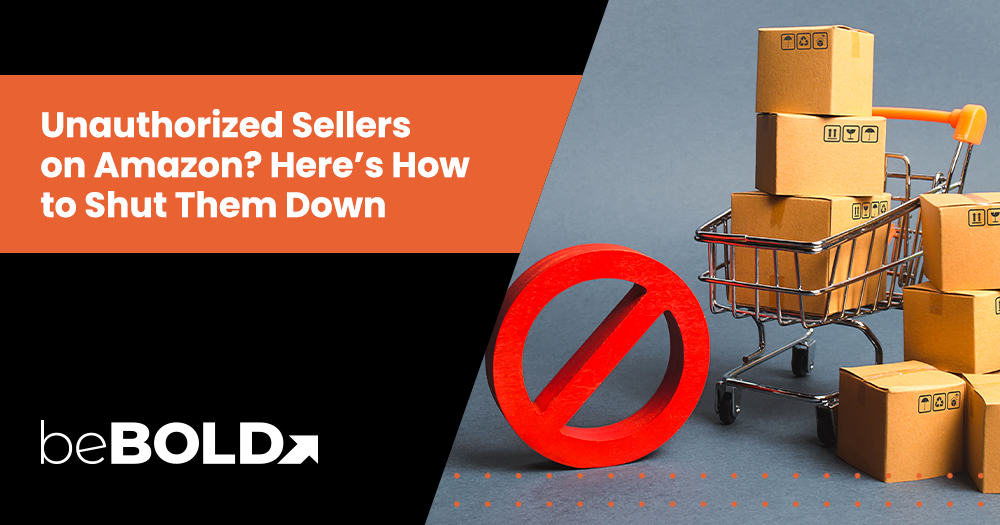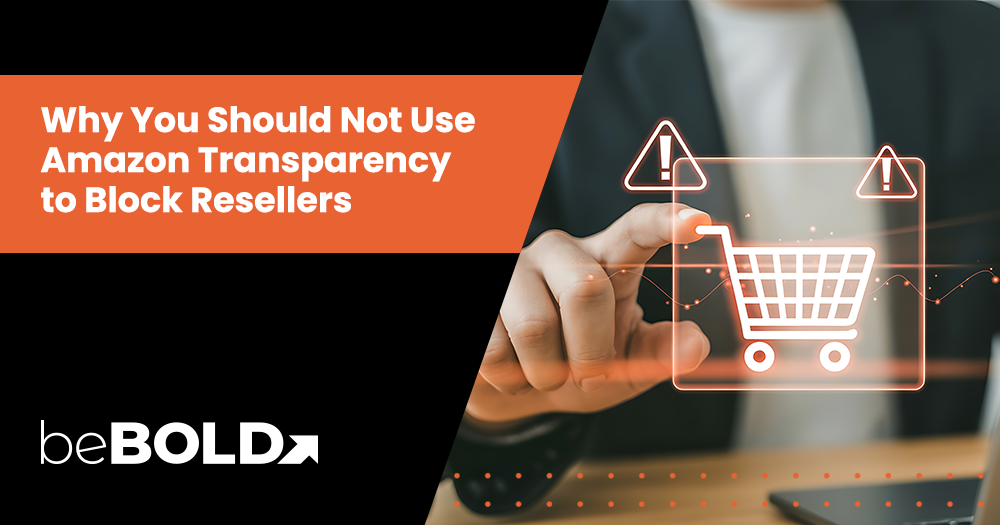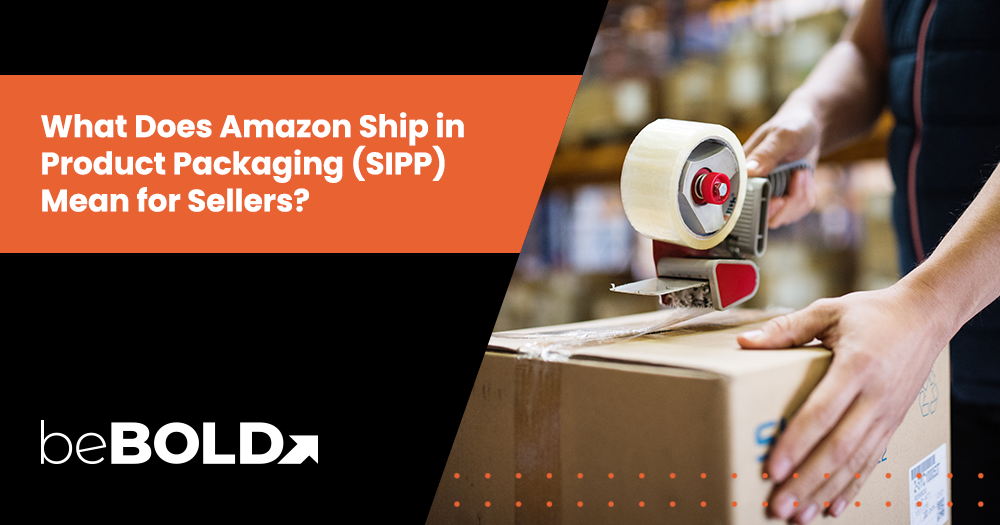Key Highlights
- Most Amazon sellers require a business license, especially for regulated categories or when operating as an LLC or corporation.
- A business license differs from a seller’s permit or resale certificate, each serving specific purposes, such as tax collection or exemption.
- A business license is required for LLCs, corporations, regulated products, or home-based sales. Always check local laws.
- Amazon doesn’t require a business license to start, but Etsy and Shopify have different rules.
- Register your business, choose the right structure, submit documents, pay fees ($50–$400), and renew annually.
- Expect application fees between $50–$400 and processing times of 1–4 weeks. Set a reminder for renewal.
- Focus on growing your business while beBOLD optimizes your Amazon listings and handles compliance.

Selling on Amazon doesn’t always require a business license, but it depends on what you're selling and how your business is structured. Individual sellers or sole proprietors often don’t need one, especially in less-regulated categories. However, forming an LLC or operating in certain states may trigger licensing requirements. While not mandatory for everyone, having a license can boost credibility and help you stay compliant. This blog covers when a license is needed, what types may apply, and how to navigate requirements based on your Amazon selling journey.
Business License vs. Seller’s Permit vs Resale Certificate
When running a business, understanding the difference between a business license, a seller’s permit, and a resale certificate is crucial.
- Business License: This is your official permission to operate a business legally within your jurisdiction. It ensures your business complies with local laws and regulations.
- Seller’s Permit: Required in many states for businesses selling tangible goods. It enables you to collect sales tax from customers and remit it to the relevant state authorities.
- Resale Certificate: This certificate allows you to purchase goods for resale without incurring sales tax. It's typically required when you buy products from wholesalers or manufacturers to resell them to customers.
Common confusion areas, callout box for definitions
Here’s a simple comparison table to clear up the common confusion between a Business License, Seller’s Permit, and Resale Certificate:
|
License Type |
Definition |
When You Need It |
Key Purpose |
|
Business License |
Legal permission to operate a business within a jurisdiction. |
All businesses, whether selling products or services. |
Allows your business to legally operate. |
|
Seller’s Permit |
Required to collect sales tax on taxable goods or services. |
If you're selling taxable goods or services. |
Enables tax collection from customers. |
|
Resale Certificate |
Allows you to purchase items for resale without paying sales tax. |
When buying from wholesalers or manufacturers. |
Avoids paying sales tax on products for resale. |
Advantages of Setting Up an LLC or a Business Account

Setting up an LLC or business account offers credibility, legal protection, and tax benefits. It streamlines operations, ensures compliance, and helps professionally present your business. The table below provides a quick glance at these advantages:
|
Advantages |
Description |
|
Credibility & Trust |
Establishes your business as legit, building customer confidence and helping with supplier negotiations. |
|
Legal Protection and Advantages |
Separates personal assets from business risks, ensuring you’re protected in case of legal disputes. |
|
Give You More Options Come Tax Season |
Opens up tax-saving opportunities, with options for deductions and flexibility in how you're taxed. |
1. Credibility and Trust with Customers
An LLC or business account enhances your credibility, especially when selling a brand. It shows customers that you’re a legitimate business, not just an individual seller. Additionally, it simplifies working with suppliers, banks, and advertising partners, further boosting your professional image.
2. Legal Protections and Advantages
By forming an LLC, business owners provide limited liability protection for their assets, as it separates their personal liability from their business. Forming an LLC establishes your business as a separate legal entity, which also simplifies legal matters such as contracts and dispute resolutions. This protection gives you peace of mind, knowing your personal finances won’t be at risk in case of business issues.
3. Give You More Options Come Tax Season
With an LLC, you get more tax flexibility. You can choose to be taxed as an S-Corp or LLC, which can lower self-employment taxes. This structure enables you to take advantage of deductions. It provides more options for tax planning, giving you greater control over your business finances, including the management of personal bank accounts.
When Do You Need a Business License to Sell on Amazon?

You generally need a business license to sell on Amazon if you’re running a formal business or selling in regulated categories. Here's what you need to know.
1. Federal Licensing (rare, regulated industries only)
Federal business licenses are rarely required but are necessary for highly regulated industries, such as those involving firearms, alcohol, or selling food. These industries are subject to strict government oversight, making federal licensing a prerequisite before you begin selling.
2. State Licensing Requirements (depends on structure, income, and products)
Most states require a business license, which is based on your business structure, income, or the products you sell, to comply with state regulations. LLCs, corporations, and sole proprietorships, which are considered unincorporated entities, all have different state requirements, so it’s crucial to check local laws based on your business setup.
3. City/County/Local Regulations (e.g., DBA, home zoning laws)
Many counties and cities require a home-occupation permit if you run your Amazon business from home. For example, a “Doing Business As” (DBA) filing is needed if you sell under a brand name like “Sunshine Beauty.” However, local zoning rules may limit on-site inventory or customer pickups; always confirm with your county office.
Scenarios Where You Do Not Need a Business License

In some cases, you may not need a business license to sell on Amazon. Here are the common situations where a business license might not be necessary:
1. Selling Casually, Low Volume, as a Hobby
If you're selling items like occasional clothing, Amazon Handmade, or crafts as a hobby, and the volume is low, you may not need a business license. This applies if you're not running a formal business and are only occasionally selling personal goods.
2. Using an Individual Amazon Seller Account
For individual sellers who are just getting started and not operating a formally registered business entity, an Amazon Seller Account may not require a business license. However, you may need to update your account if your sales increase significantly, particularly regarding sales tax collection requirements, including the provision of a taxpayer identification number.
3. Selling Non-Regulated Products
Suppose you’re selling products that are not subject to regulation (e.g., non-food, non-alcoholic items), and you're not doing so under a business entity; in that case, you might not need a business license. So, always check local laws to be sure.
Checklist: Do You Need a Sales Tax License?
|
Situation |
Need a Business License? |
Need Sales Tax Permit? |
|
Selling casually, low volume, as a hobby |
No |
No |
|
Using an Individual Amazon Seller Account |
No |
Yes (depends on state) |
|
Selling non-regulated products |
No |
Yes (if required by state) |
|
Selling as a business entity (LLC, Corporation) |
Yes |
Yes |
|
Selling in a regulated category (e.g., alcohol) |
Yes |
Yes |
Platform-specific Licensing Requirements

Each platform has different rules for selling. While Amazon doesn’t require a business license, it expects sellers to comply with local regulations.
1. Amazon’s Specific Policies and Requirements
Sellers on Amazon must comply with local, state, and federal laws. For most categories, identity verification or tax details like an EIN may be needed. Amazon Handmade has stricter requirements, including an application, category approval, and documentation to verify product authenticity.
2. Differences in Requirements Across Other Platforms
Etsy is more relaxed, especially for hobby sellers, though local laws still apply. Shopify and eBay don’t require a license upfront, but documents may be needed for payment features or brand partnerships.
Steps to Apply for a Business License as an Amazon Seller
Applying for a business license needs some planning, but you can do it by following clear steps:
- Choose Your Business Structure: Decide if you’ll operate as a sole proprietor, LLC, or corporation. This decision will impact taxes and liability.
- Register Your Business Name: Choose and register your business name. If using a "Doing Business As" (DBA) name, make sure it’s available in your state, as there is some paperwork involved in this process.
- File with City/State: Apply for the business license with your local city or state government. The application process may involve submitting documents such as your Employer Identification Number (EIN), proof of identity, and a completed form.
- Pay Fees: Most business licenses require an initial fee, which can vary depending on your location and business structure.
- Wait for Approval: After submitting your application and paying the fee, wait for approval. Processing time can take anywhere from a few days to a few weeks.
- Renewal Procedures: Business licenses are typically valid for one year and must be renewed annually. Be sure to mark your calendar to avoid missing the deadline. Renewal fees are often lower than initial application costs.
Important Tips to Keep in Mind:
- Costs: Fees typically range from $50 to $400, depending on your location and the type of business structure.
- Duration: The application process can take between a few days to 4 weeks.
- Renewal: Mark your renewal dates on your calendar, as some licenses have hefty penalties for late renewals.
Unlock Your Amazon Potential with beBOLD Digital
Getting started on Amazon requires more than just the right licenses; it takes the right strategy and expertise. At beBOLD Digital, we specialize in transforming brands into successful Amazon sellers through expert account management, listing optimization, and growth strategies.
We also focus on elevating your Amazon presence by ensuring your listings are visible, your pricing is competitive, and your brand stands out.
Partner with us to streamline your Amazon operations and turn your business into a top performer. Let’s make your brand thrive on Amazon. Contact us today!
Conclusion
Determining whether you need a business license to sell on Amazon is a crucial step in ensuring your e-commerce success, especially for new sellers. The legal requirements vary based on your location, the products you sell, and your business structure.
Navigating these licensing rules may seem tricky, but it’s crucial for staying compliant and building trust with your customers. When you have the right business license in place, you not only protect your business but also set yourself up for long-term success.
Make sure you're all set; getting your licensing right from the start is a smart move for any serious seller.
Frequently Asked Questions
Is a business license mandatory for selling on Amazon?
Not always. You may need a business license depending on what you sell and the rules in your area. Most small businesses that sell everyday items on Amazon do not require a business license. However, if you run an Amazon store selling things that are closely watched by the law, or if you make a lot of money from your online business, you might have to get one to follow the law.
Can I sell on Amazon as an individual without a business structure?
Yes, Amazon lets you sell items as a sole proprietor through an individual account. You will need to use your Social Security number for tax purposes. This option is suitable for those who plan to sell only a few items. People can sign up without a business license, so it is the best way to get started on Amazon. If you're new and want to try selling, this approach can work well for you.
How does having a business license affect tax reporting for Amazon sales?
Having a business license can make it easier to file your taxes if you sell on Amazon as part of an Amazon seller business. When you have an EIN issued by the Internal Revenue Service, you can keep your personal and business tax details apart when dealing with the IRS. If you set up an LLC and have a business license along with a sales tax ID, you may also want to consult an accountant for pass-through taxation. This helps reduce mistakes and problems with the Internal Revenue Service during tax season.
What are the penalties for not having a needed business license?
If you run a business without a required business license, you may get fined or face other legal trouble from the state or local government. For individuals who sell on Amazon, failing to follow the rules can lead to problems for their store. This can harm your sales and hinder the growth of your business.
Ready to sell on Amazon? Get your business license and reach out to beBOLD Digital to set up for success!










Comments